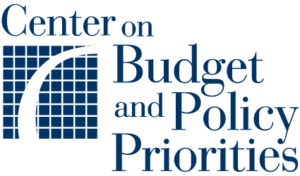Fitch: Medicaid Block Grants, MFAR Threaten States, Providers
Medicaid block grants and the proposed Medicaid fiscal accountability regulation (MFAR) pose new financial threats to providers and states, according to Fitch Ratings, the financial rating company.
MFAR poses the greater threat, Fitch believes, noting in a new analysis that it could
…reduce total Medicaid spending nationally by $37 billion and $44 billion annually…and by $23 billion to $30 billion for hospitals alone. States, and to some extent providers, would respond to MFAR’s implementation with measures to mitigate the negative fiscal implications.
 Block grants, through what has been named the Healthy Adult Opportunity program, also pose a threat, with Fitch explaining that
Block grants, through what has been named the Healthy Adult Opportunity program, also pose a threat, with Fitch explaining that
Capping federal Medicaid contributions, even for a subset of beneficiaries, poses risks to state budgets and those entities reliant on state funding, including local governments and providers. States would need to find revenue or cost savings, either in Medicaid or elsewhere, to offset reduced federal contributions.
Because Pennsylvania safety-net hospitals care for more Medicaid patients than the typical hospital, both proposed policy changes have a potentially greater impact on them.
Last month SNAP conveyed its opposition to the proposed MFAR regulation in a formal comment letter to the Centers for Medicare & Medicaid Services in response to the regulation’s publication late last year. Pennsylvania Governor Tom Wolf has already rejected the idea of using block grants in the state’s Medicaid program.
Learn more about the potential impact of the proposed Medicaid fiscal accountability regulation and Medicaid block grants in the Fitch Ratings analysis “Fitch Rtgs: Medicaid Changes Will Affect States, NFP Healthcare Providers.”
 Ever since, the program – essentially, Medicaid block grants – has been the subject of criticism from many public officials and health care stakeholders.
Ever since, the program – essentially, Medicaid block grants – has been the subject of criticism from many public officials and health care stakeholders. Among the groups submitting formal comment letters to the Centers for Medicare & Medicaid Services in response to the proposed Medicaid fiscal accountability regulation was the Safety-Net Association of Pennsylvania. See SNAP’s letter
Among the groups submitting formal comment letters to the Centers for Medicare & Medicaid Services in response to the proposed Medicaid fiscal accountability regulation was the Safety-Net Association of Pennsylvania. See SNAP’s letter  In a news release, Governor Wolf said that
In a news release, Governor Wolf said that While many, including members of Congress, insist that the administration cannot move forward with such a proposal without legislation, others suggest that the administration may offer states the opportunity to participate in Medicaid block grants voluntarily, by seeking a federal waiver. What remains to be seen is whether the prospect of greater flexibility to shape their own Medicaid programs is sufficient to entice states to participate in an approach that almost certainly would result in less federal money for those programs.
While many, including members of Congress, insist that the administration cannot move forward with such a proposal without legislation, others suggest that the administration may offer states the opportunity to participate in Medicaid block grants voluntarily, by seeking a federal waiver. What remains to be seen is whether the prospect of greater flexibility to shape their own Medicaid programs is sufficient to entice states to participate in an approach that almost certainly would result in less federal money for those programs.
 Included in this edition are stories about:
Included in this edition are stories about: